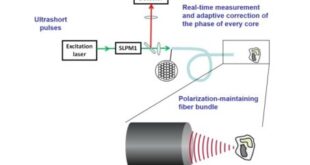In today’s rapidly evolving technological landscape, two groundbreaking innovations are making waves: Artificial Intelligence (AI) and the Internet of Things (IoT). Individually, these technologies have transformed industries, enhanced efficiencies, and created new opportunities. However, the fusion of AI and IoT, known as the Artificial Intelligence of Things (AIoT), is set …
Read More »The Dawn of a Smarter Future: Exploring Emerging Smart Grid Technologies
Introduction In today’s rapidly evolving world, energy demands are growing, and the need for efficient, reliable, and sustainable power distribution has never been more critical. Enter smart grid technologies – the game-changers that are revolutionizing the energy landscape. Smart grids are intelligent, digitized systems that integrate advanced technologies into traditional …
Read More »Urban Air Mobility: The Future of Urban Transportation and the Challenges Ahead
Urban Air Mobility (UAM) represents a transformative vision for urban transportation, integrating advanced aviation technologies to create a network of air vehicles designed to alleviate ground traffic congestion. This futuristic mode of transport promises quicker travel times, reduced pollution, and enhanced connectivity. However, realizing the full potential of UAM requires …
Read More »The Internet of Things (IoT) and Military Internet of Things (MIoT): A Technological Convergence Revolutionizing Connectivity
The Internet of Things (IoT) has become a pivotal force in modern technology, driving connectivity and automation across various sectors. By enabling everyday objects to connect and communicate, IoT is transforming industries, enhancing efficiencies, and creating new business models. One of the most fascinating applications of IoT is in the …
Read More »Hydrogen Generation Market Size & Trends
The global hydrogen generation market, estimated at USD 170.14 billion in 2023, is poised for significant growth. With a projected compound annual growth rate (CAGR) of 9.3% from 2024 to 2030, the market is driven by the increasing demand for cleaner fuel and stringent government regulations on desulfurizing petroleum products. …
Read More »Exploring the Benefits and Evolution of Learning Management Systems (LMS) in Education
In the dynamic landscape of education and professional training, Learning Management Systems (LMS) have emerged as indispensable tools for delivering and managing learning content efficiently. Whether in traditional classrooms, corporate training programs, or online courses, LMS platforms play a pivotal role in enhancing learning experiences and outcomes. Let’s delve into …
Read More »Biophotonics: A Glimpse into the Future of Medical Diagnosis and Treatment
Introduction Biophotonics is an interdisciplinary field that explores the interaction between light (electromagnetic radiation) and biological materials such as subcellular structures, cells, tissues, and molecules in living organisms. This integration of light and biology holds significant potential to address crucial societal challenges in areas like human health, environmental monitoring, and …
Read More »The Vital Role of Learning Management Systems (LMS) in Healthcare
The healthcare industry is continuously evolving with advancements in medical technology, treatment methodologies, and regulatory requirements. Keeping up with these changes demands ongoing education and training for healthcare professionals. This is where Learning Management Systems (LMS) come into play, revolutionizing how healthcare organizations deliver, manage, and track educational content and …
Read More »Exploring the World with Google Earth: Technology, Applications, and Importance
Introduction Since its launch in 2001, Google Earth has revolutionized the way we perceive our planet. This powerful tool allows users to explore the world from the comfort of their homes, offering a bird’s-eye view of virtually any location on Earth. Imagine exploring the pyramids of Giza from your couch, …
Read More »The Cool Path to Quantum Computing: Dilution Refrigeration Technology and Superconducting Qubits
Quantum computing, a frontier in computational technology, promises to revolutionize fields from cryptography to material science. At the heart of this revolution are superconducting qubits, the building blocks of quantum computers. These qubits leverage the strange properties of quantum mechanics to perform calculations at unprecedented speeds. However, harnessing these properties …
Read More » International Defense Security & Technology Your trusted Source for News, Research and Analysis
International Defense Security & Technology Your trusted Source for News, Research and Analysis



